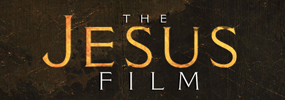1 And the men of Kiriath-jearim came and took up the ark of the Lord and brought it to the house of Abinadab on the hill. And they consecrated his son Eleazar to have charge of the ark of the Lord. 2 From the day that the ark was lodged at Kiriath-jearim, a long time passed, some twenty years, and all the house of Israel lamented after the Lord. 3 And Samuel said to all the house of Israel, “If you are returning to the Lord with all your heart, then put away the foreign gods and the Ashtaroth from among you and direct your heart to the Lord and serve him only, and he will deliver you out of the hand of the Philistines.” 4 So the people of Israel put away the Baals and the Ashtaroth, and they served the Lord only. 5 Then Samuel said, “Gather all Israel at Mizpah, and I will pray to the Lord for you.” 6 So they gathered at Mizpah and drew water and poured it out before the Lord and fasted on that day and said there, “We have sinned against the Lord.” And Samuel judged the people of Israel at Mizpah. 7 Now when the Philistines heard that the people of Israel had gathered at Mizpah, the lords of the Philistines went up against Israel. And when the people of Israel heard of it, they were afraid of the Philistines. 8 And the people of Israel said to Samuel, “Do not cease to cry out to the Lord our God for us, that he may save us from the hand of the Philistines.” 9 So Samuel took a nursing lamb and offered it as a whole burnt offering to the Lord. And Samuel cried out to the Lord for Israel, and the Lord answered him. 10 As Samuel was offering up the burnt offering, the Philistines drew near to attack Israel. But the Lord thundered with a mighty sound that day against the Philistines and threw them into confusion, and they were defeated before Israel. 11 And the men of Israel went out from Mizpah and pursued the Philistines and struck them, as far as below Beth-car. 12 Then Samuel took a stone and set it up between Mizpah and Shen and called its name Ebenezer; for he said, “Till now the Lord has helped us.” 13 So the Philistines were subdued and did not again enter the territory of Israel. And the hand of the Lord was against the Philistines all the days of Samuel. 14 The cities that the Philistines had taken from Israel were restored to Israel, from Ekron to Gath, and Israel delivered their territory from the hand of the Philistines. There was peace also between Israel and the Amorites. 15 Samuel judged Israel all the days of his life. 16 And he went on a circuit year by year to Bethel, Gilgal, and Mizpah. And he judged Israel in all these places. 17 Then he would return to Ramah, for his home was there, and there also he judged Israel. And he built there an altar to the Lord.
(1 Samuel 7:1-17)
We left off yesterday with the Philistines attacking Israel. Israel had turned back to God after many years of spiritual decline. That spiritual decline had led to all kinds of problems including numerous attacks by the Philistines []. Israel may have thought that since they had humbled themselves before God and had confessed their sins life would immediately change for the better. Instead, the Philistines attacked again.
When the people of Israel heard that the Philistines were on the march, they were afraid. This is certainly understandable. They were gathered on a hill where they were subject to a siege.
Recognizing their vulnerability they commanded Samuel to cry out to the Lord for them. They knew they had no ability to save themselves in this situation. They wanted God to save them from the hand of the Philistines.
Israel could have dealt with their fear in a few ways. They could have run away and hid or they could have tried to defend themselves. Either way, their efforts would have resulted in certain disaster.
They also could have lashed out against God, blaming Him for this new found trouble. After all, they had just dedicated themselves to God and confessed their sins. They had done the things that God wanted them to do. They could have expected God to bless them. Instead, He allows them to face a trial and they could have resented it.
Instead, they do the right thing. They turn to God in prayer. This is what we should do too when we are attacked by Satan or are tempted to sin. We cannot handle these situations on our own. If we do, we’ll likely make things worse.
But notice that Samuel doesn’t immediately pray for Israel. Instead, he first makes an offering to the Lord. This teaches us an important spiritual lesson. There can be no salvation without a blood sacrifice [Hebrews 9:22].
God is willing to save us from our sins. For that to happen we need to confess those sins. Confession itself cannot save us. Nothing we can do can save us. Rather confession allows God to save us.
All sin needs to be atoned for. Just as all credits require an offsetting debit in an accounting system, all sin requires punishment in God’s plan of salvation. Someone needs to pay for our sins, even if God forgives those sins. When God forgives, He clears the sinner. But to be just and fair, He still demands that the sinner’s sins be accounted for.
The atoning death of Jesus on the cross at Calvary was the once-and-for-all sacrifice for the sins of humanity. Jesus took on the penalty due every member of the human race when He hung on that cross. In God’s accounting system, all sin was paid in full.
The blood sacrifices offered in the Old Testament, such as the one offered by Samuel in today’s passage, foreshadowed the sacrifice made by Jesus on the cross. They were meant to teach those living under the Old Testament that they could not pay for their own sins; they needed someone else to pay the penalty they were due.
Samuel sacrificed a nursing lamb, enabling God to save the people from the Philistines. Centuries later, God sacrificed His own Son, Jesus to save people from their sins.
 |
Comments? Questions? I’d love to hear from you. Please feel free to contact me about this post. |











